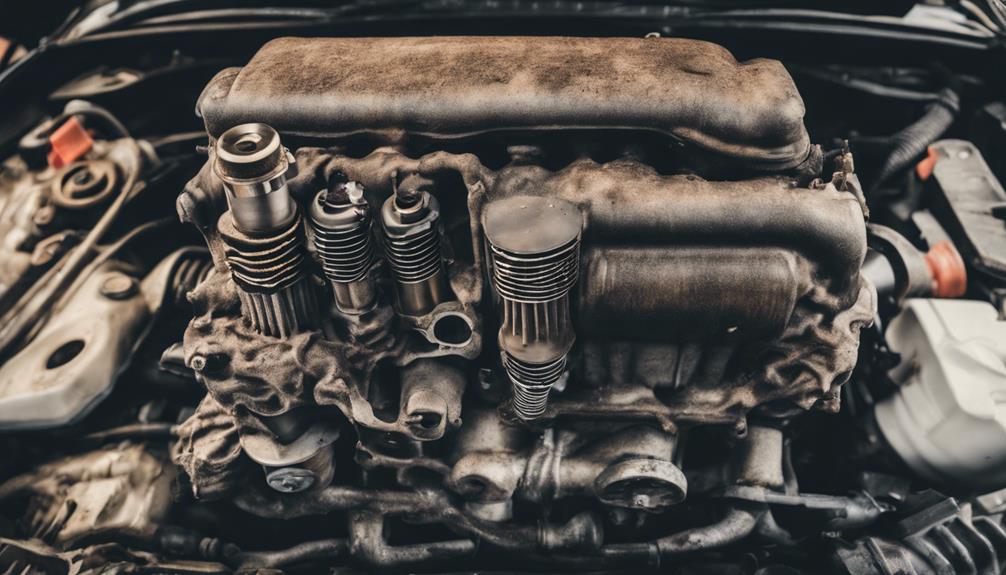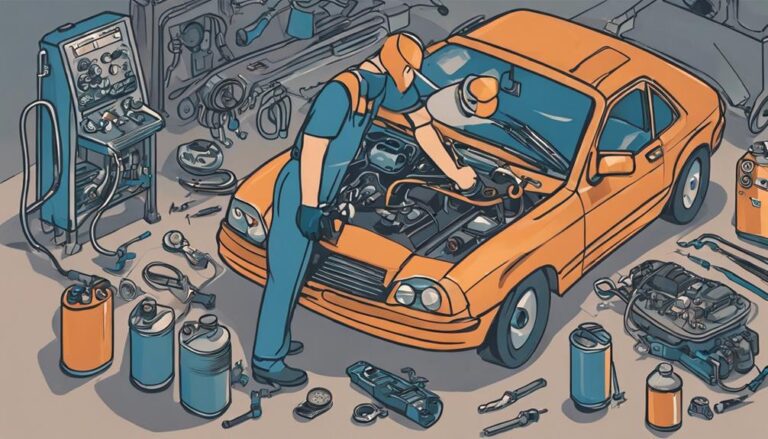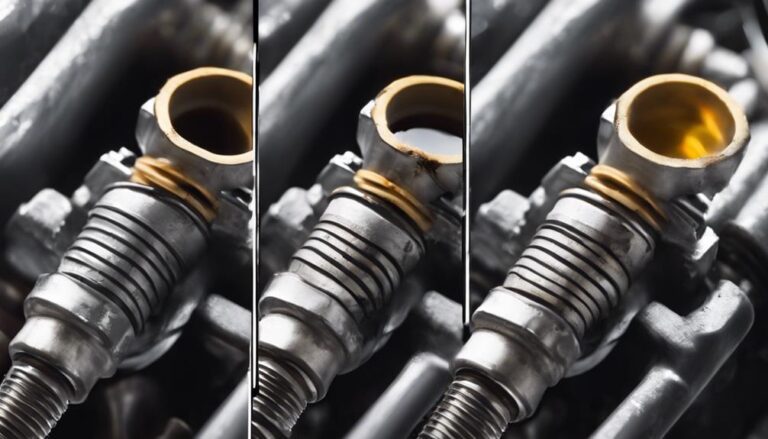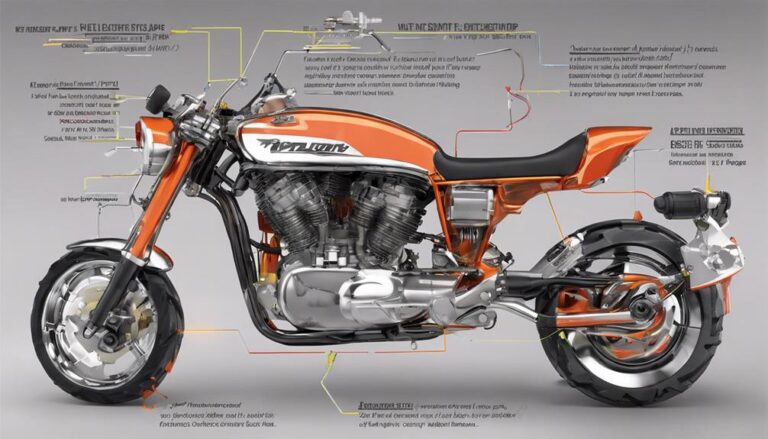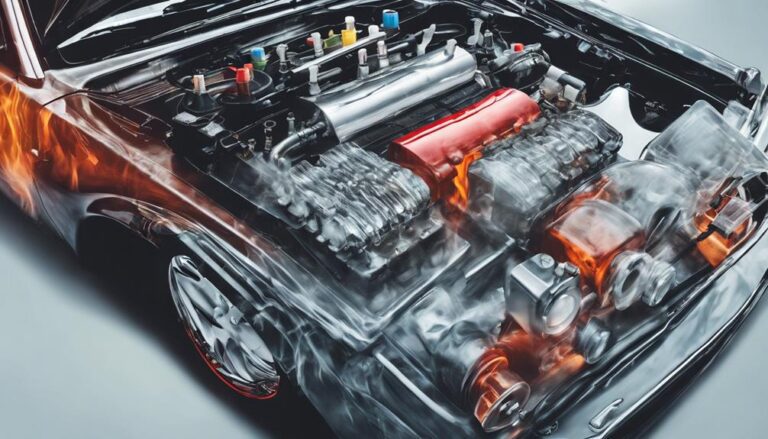Identifying Signs of Clogged Fuel Filter in Cars
Have you ever driven your car and felt like it's losing power unexpectedly? Imagine cruising along, and suddenly your car hesitates or jerks. These could be signs of a clogged fuel filter impacting your vehicle's performance.
But there's more to uncover beyond just reduced engine power. Stay tuned to learn about the subtle hints your car might be dropping, indicating a potential fuel filter issue that could impact your daily drive more than you realize.
Key Takeaways
- Reduced engine performance: hesitation, lack of power, and delayed response signal potential fuel filter issues.
- Difficulty starting the engine: long cranking times and intermittent starting suggest fuel system problems.
- Engine stalling at low speeds: power loss, RPM fluctuations, and jerky acceleration may point to a clogged fuel filter.
- Surging or bucking under load: engine surges, misfires, and decreased fuel efficiency could indicate fuel filter problems.
Reduced Engine Performance
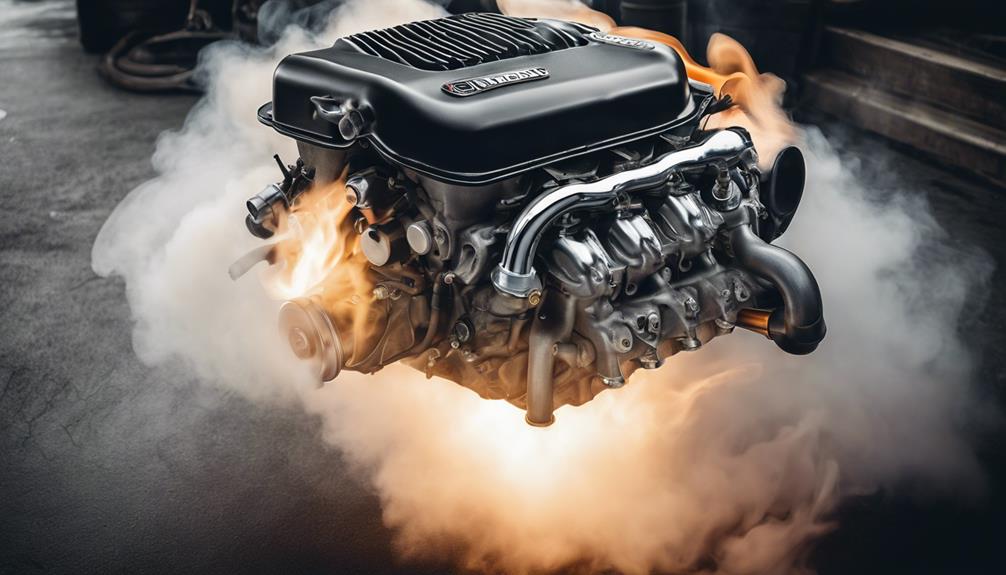
If your car is experiencing reduced engine performance, a clogged fuel filter could be to blame. When your fuel filter is clogged, it restricts the flow of fuel to the engine, leading to engine hesitation and acceleration issues. Engine hesitation occurs when you press on the gas pedal, but there's a delay in the engine's response. This can be frustrating and dangerous, especially in situations where quick acceleration is necessary. Acceleration issues manifest as a lack of power when you try to speed up, making it challenging to drive efficiently.
To address these problems, it's essential to have your fuel filter inspected and replaced if necessary. Regular maintenance of your fuel system can prevent these issues from occurring and guarantee optimal engine performance. By staying proactive and attentive to the signs of a clogged fuel filter, you can maintain the smooth operation of your vehicle and avoid unexpected breakdowns.
Difficulty Starting the Engine
Experiencing difficulty starting the engine can also indicate a potential issue with your fuel filter, causing disruptions in the fuel flow and leading to starting problems. When your fuel filter is clogged, it restricts the amount of fuel that reaches the engine, resulting in ignition problems. Ignition problems, in turn, make it hard for your engine to start smoothly. If you find yourself struggling to start your car, especially after it has been sitting for a while, it might be time to inspect your fuel filter for any blockages.
To help you understand further, here is a table highlighting the relationship between difficulty starting the engine and fuel system issues:
| Difficulty Starting the Engine | Potential Cause |
|---|---|
| Engine cranks but doesn't start. | Clogged fuel filter. |
| Long cranking before engine starts. | Fuel pump malfunction. |
| Intermittent starting issues. | Dirty fuel injectors. |
If you notice any of these signs, it's advisable to have your fuel system checked promptly to prevent further complications.
Engine Stalling at Low Speeds
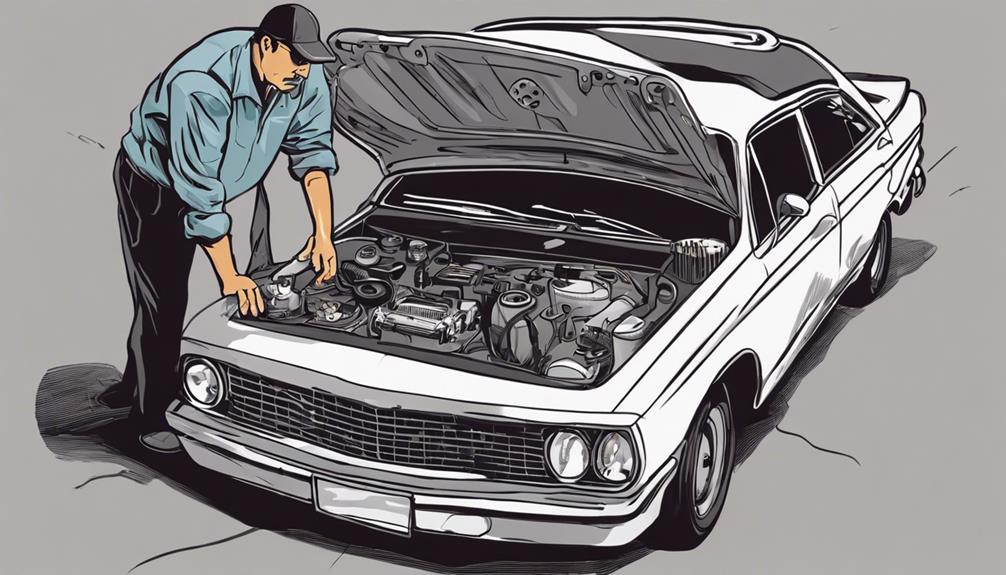
Engine stalling at low speeds can often be attributed to a compromised fuel filter, leading to interruptions in fuel delivery and causing the engine to cut out unexpectedly. When faced with engine sputtering and idle issues, it's important to contemplate the state of your fuel filter as a potential culprit.
Here are some key indicators that your engine stalling may be linked to a clogged fuel filter:
- Intermittent Loss of Power: You may experience a sudden loss of power while driving at low speeds.
- Inconsistent Engine Revving: The engine may struggle to maintain a steady RPM, fluctuating erratically.
- Difficulty Accelerating Smoothly: Acceleration may feel jerky and uneven, especially when starting from a standstill.
- Lingering Stalling After Startup: The engine might stall shortly after starting or when coming to a stop.
- Unstable Idle: Your vehicle may have trouble idling smoothly, with noticeable dips or surges in RPM.
If you encounter these symptoms, it's advisable to have your fuel filter inspected and potentially replaced to guarantee engine performance.
Surging or Bucking Under Load
When faced with engine stalling at low speeds potentially caused by a clogged fuel filter, another related issue to watch out for is surging or bucking under load. Surging refers to a sudden fluctuation in engine speed, usually when accelerating, while bucking indicates a jerking motion of the vehicle under load. These symptoms can be indicative of a clogged fuel filter affecting the fuel flow to the engine. However, it's important to take into account other potential causes as well.
Surging or bucking under load can also stem from issues with the spark plug or ignition coil. A faulty spark plug may not ignite the air-fuel mixture properly, leading to inconsistent engine performance. Similarly, a malfunctioning ignition coil can result in irregular electrical discharges to the spark plugs, causing misfires and disturbances in the engine operation. When troubleshooting surging or bucking under load, it's vital to inspect the spark plugs and ignition coils alongside checking for a clogged fuel filter.
Decreased Fuel Efficiency

To identify signs of decreased fuel efficiency in your vehicle, closely monitor the mileage per gallon and observe any noticeable decrease over time. Keeping track of your fuel consumption can help you pinpoint issues early on, potentially saving you money in the long run. If you notice a decline in fuel efficiency, it could be a sign of a clogged fuel filter affecting your engine's performance.
When faced with reduced mileage per gallon, consider the following:
- Check Engine Light: Pay attention to the check engine light, as it can sometimes indicate fuel system maintenance needs.
- Unusual Engine Sounds: Listen for any unusual engine sounds, as these could be linked to fuel filter problems.
- Difficulty Starting: If you experience difficulty starting your vehicle, it might be due to a clogged fuel filter.
- Reduced Acceleration: A decrease in acceleration power can be a result of restricted fuel flow.
- Delayed Response: Notice any delays in your vehicle's response when you press the gas pedal, which could signal the need for fuel filter replacement.
Regular fuel system maintenance, including timely fuel filter replacement, is vital to ensuring the best fuel efficiency and engine performance.
Frequently Asked Questions
How Often Should a Fuel Filter Be Replaced in a Car?
You should replace your car's fuel filter according to the maintenance schedule in your owner's manual. This guarantees peak fuel efficiency. You can do a DIY replacement, but if unsure, consult a professional mechanic for assistance.
Can a Clogged Fuel Filter Cause Damage to Other Parts of the Car's Engine?
If neglected, a clogged fuel filter can indeed lead to engine damage. Regular fuel filter maintenance and timely replacement are essential to prevent potential harm to other parts of your car's engine. Stick to the maintenance schedule for best performance.
Is It Possible for a Fuel Filter to Become Clogged Even if the Car Is Regularly Maintained?
Sometimes, despite your best efforts in maintenance, a fuel filter can still get clogged. Keeping up with the maintenance schedule guarantees peak fuel efficiency and engine performance. Regular fuel system maintenance is key to preventing issues.
Are There Any Warning Signs That Indicate a Fuel Filter Is Starting to Become Clogged, Before It Affects Engine Performance?
If you notice a decrease in fuel efficiency or experience maintenance issues that seem related to fuel delivery, it's time to troubleshoot the fuel filter. Regular checks can prevent clogging and guarantee smooth engine performance.
Is It Possible to Clean a Clogged Fuel Filter, or Does It Always Need to Be Replaced?
When dealing with a clogged fuel filter, it's important to evaluate if cleaning is viable. DIY attempts are risky; it's best left to professionals. Replacement guarantees top performance and prevents potential engine damage.
Conclusion
If you ignore the signs of a clogged fuel filter in your car, you might as well be driving a snail on wheels. Reduced engine performance, difficulty starting, stalling, surging, and decreased fuel efficiency are all red flags that shouldn't be ignored.
Don't let a clogged fuel filter slow you down – address the issue promptly to keep your car running smoothly and efficiently.

